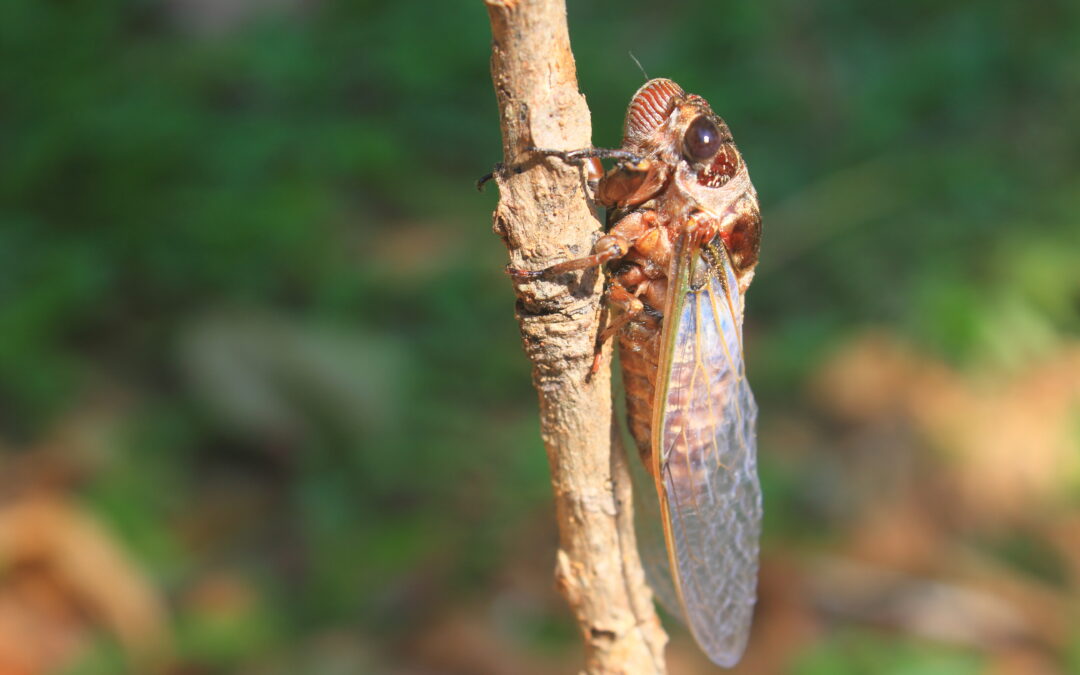Should I be worried about Cicadas in middle Tennessee?
Cicadas do not bite or sting humans or pets, therefore there is no physical risk to humans. Commonly mistaken for locusts, which have the capability to wipe out acres of grasses and crops, cicadas usually cause only minimal damage to plants they occupy. Mostly cicadas are a nuisance because of their loud noises and the smell of decaying bodies. They are poor fliers and will easily flew into open windows and doors.
Are Cicadas in Tennessee every year?
Annual cicadas do emerge yearly. Periodic cicadas emerge every 13 or 17 years. In 2024, cicadas are getting a lot of attention because it is the first time in 221 years, the 13 year Broods and the 17 year Broods are appearing in the same year.
How can I protect my yard from Cicadas?
Chemical treatments are not effective for removing cicadas, but there are some things you can do to cut down on them around your home and protect your trees and plants.
- Keep hot tubs and pools covered. They can’t swim but if they accidentally get wet, they will clog the filters and drains.
- Remove cicadas from trees and shrubs with the water hose. You can also remove a small number of cicadas by hand.
- Add physical barriers to keep cicadas off of trees and shrubs. Netting around bushes and shrubs can keep cicadas from landing on them. Wrapping foil barrier tape around tree trunks keeps them from being able to climb up trees.
- Dispose of dead cicada carcasses sooner rather than later. Sweeping/ raking up cicada carcasses and burying them can do a lot to keep the awful smell down.
What do Cicadas eat?
As young nymphs living underground, nymphs feed on the plant roots. This damage is usually not noticeable. In very large numbers, nymphs may affect the plant’s growth. As adults, cicadas feed on the plant’s fluids from young twigs and shrubs. This doesn’t cause damage to the plants.
When adults create slits in plants to lay eggs, this does cause some damage to the plant.
Cicadas do not bite or eat people or animals.

